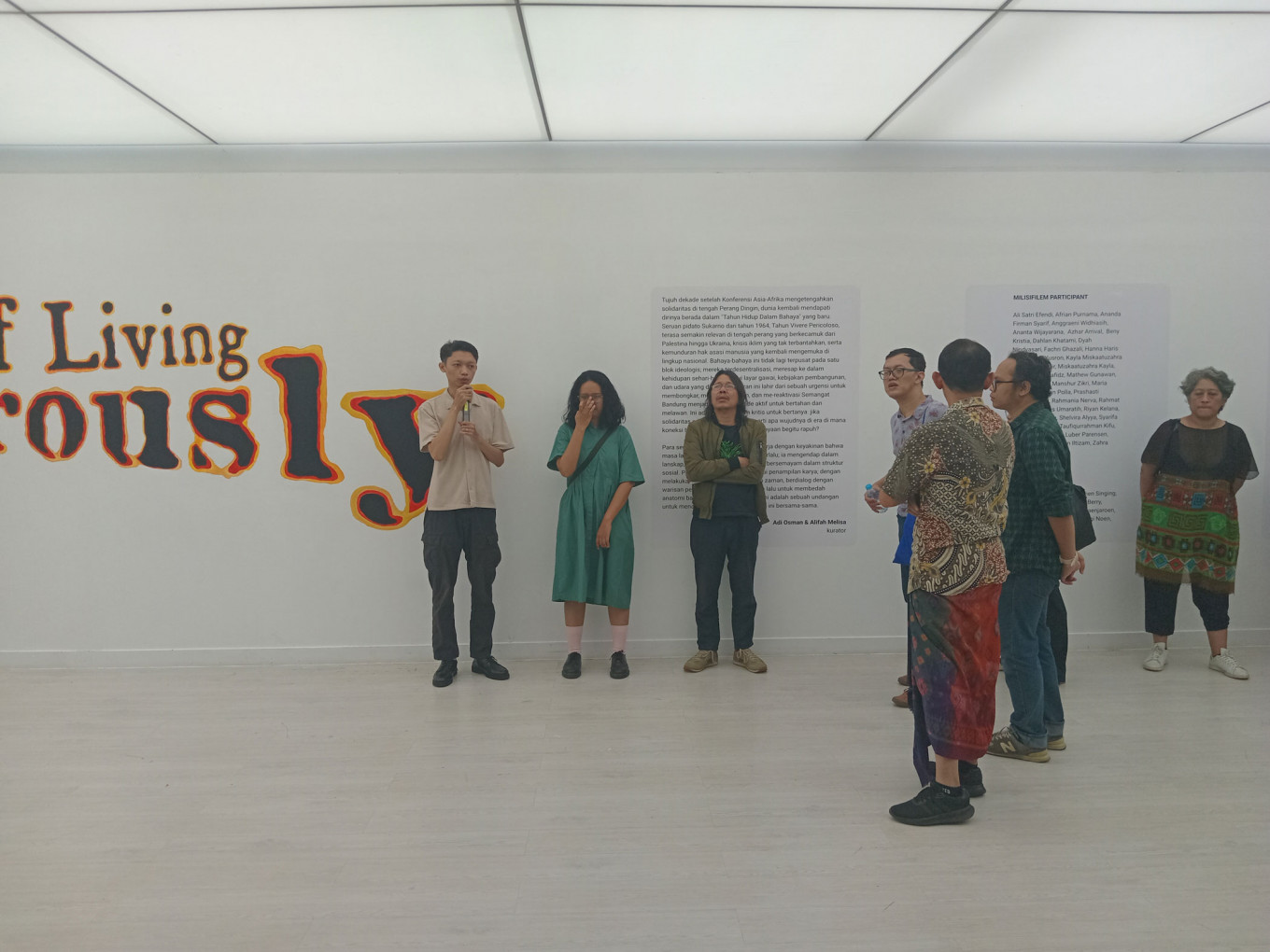Popular Reads
Top Results
Can't find what you're looking for?
View all search resultsPopular Reads
Top Results
Can't find what you're looking for?
View all search resultsAn international celebration of cinema: Arkipel runs until Sept. 20
Change text size
Gift Premium Articles
to Anyone
R
eturning for its 12th edition, Arkipel takes a bold swing with this year’s theme: ARKIPEL RESIST! Years of Living Dangerously. A film festival that highlights independent documentaries and experimental movies, the event has long served as a laboratory for reading geopolitics through cinema, aligning the art form with people’s movements of resistance and solidarity.
This year’s theme reflects on the Global South’s cultural struggles and collective resilience through decolonization, embodied in the festival’s curated programs.
Arkipel 2025 presents seven main programs: the international competition; curatorial program; Candrawala; Milisifilm Collective Exhibition; Special Presentation; Special Screening; and a series of discussions and symposiums. In total, 80 documentaries and experimental films from 26 countries will be showcased. All events are free and open to the public, with several renowned filmmakers attending Q&A sessions and panel discussions.
Held across two venues in Jakarta, the festival splits its program between Forum Lenteng Cinema, hosting screenings and solidarity forums, and the Taman Mini Indonesia Contemporary Art Gallery, which houses an art exhibition.
The Special Screening and Special Presentation segments feature collaborations with international creative organizations. Highlights include Pieces of Pieceing, presented by Hong Kong-based Videotage and supported by the Hong Kong Art Development Council, bringing 18 experimental films. The program also screens Otolith III (2005) and In the Year of the Quiet Sun (2013), works of the London-based Otolith Group that revisit the legacy of the Asian-African Conference in today’s geopolitical context.
Arkipel’s curatorial program, featuring six curators across five showcases, addresses diverse themes, from the performativity of sound and place in cinema, to Kalibata Paulo’s water crisis, geological waste deposits at Manggarai Water Gate, and historically significant Indonesian films on the global stage. Featured works include Key to the Past, Ballad of Carts (1959), Red Detachments of Women (1961) and Turang (1957).
Candrawala spotlights contemporary Indonesian film production through four films that explore the nation’s past with a strong political lens. Meanwhile, the Milisifilm Collective Exhibition, curated by Adi Osman and Alifah Melisa, examines marginalized histories and fosters dialogue among diverse cultural and academic communities. Featuring the works of 30 emerging global artists, the exhibition includes selections from Argentina, Taiwan, Hong Kong, Canada and the Czech Republic.
Running until Sept. 20, Arkipel’s art exhibition offers a platform to reflect on sociocultural issues through experimental explorations of the audiovisual medium.










